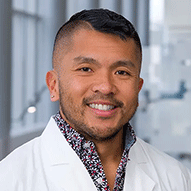Dallas
214-456-9099
Fax: 214-456-2230
Plano
469-497-2501
Fax: 469-497-2507
Puberty begins when your daughter’s body begins producing increased amounts of certain hormones, leading to physical and emotional changes. In girls, changes include breast development, pubic hair growth, a growth spurt, and finally the start of menstrual periods. Girls grow and develop at different rates, and the normal onset of puberty is sometime between the ages of 10 and 13.
214-456-9099
Fax: 214-456-2230
469-497-2501
Fax: 469-497-2507
Puberty problems occur when these processes and changes don’t occur at the typical time in your daughter’s development. These problems may include:
If your daughter is experiencing puberty problems, her symptoms may include:
If your child’s doctor suspects problems with your daughter’s puberty development, he or she will conduct a physical exam – including breast and pelvic exams, when necessary – and take a complete medical history.
The doctor may also order diagnostic tests, including:
Puberty problems can stem from a variety of causes including:
If your daughter’s doctor discovers a problem with the onset or progression of her puberty, her treatment will depend on symptoms and the underlying cause of the problems.
Treatment may include:





